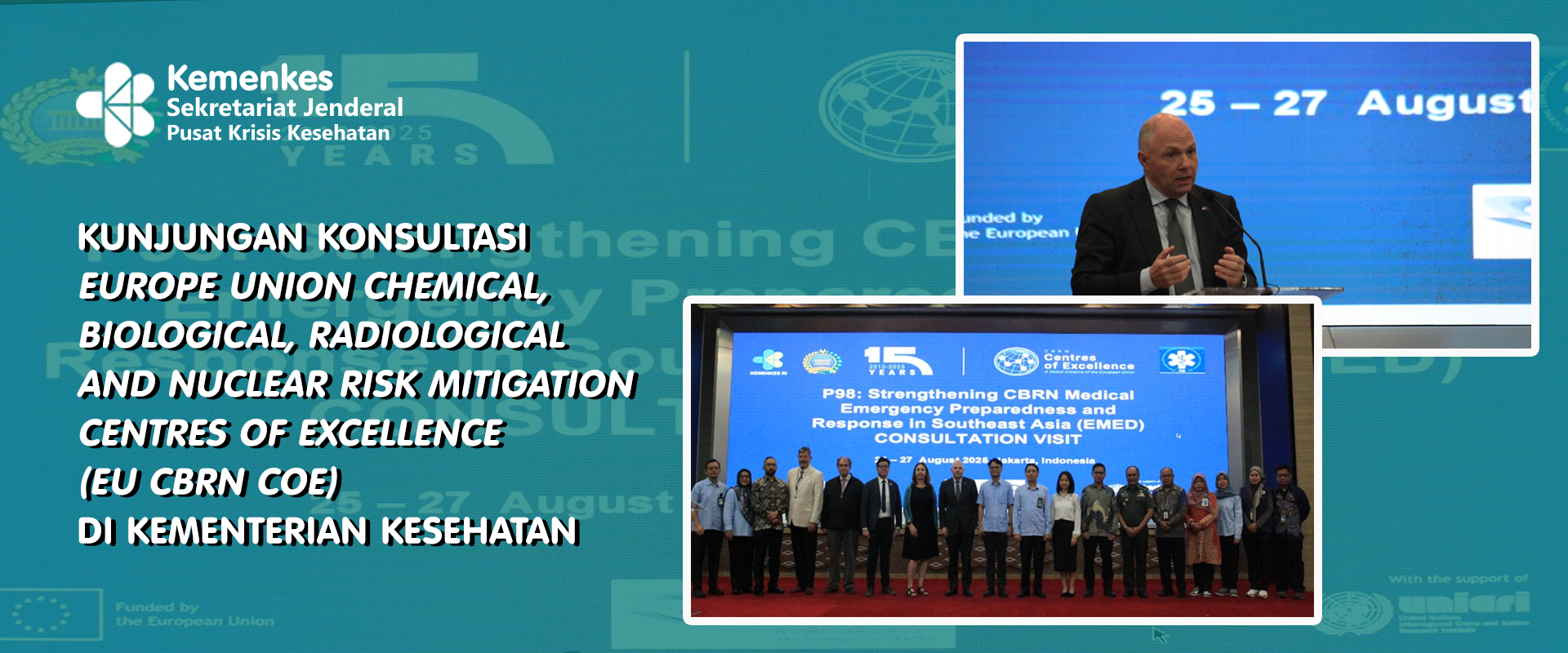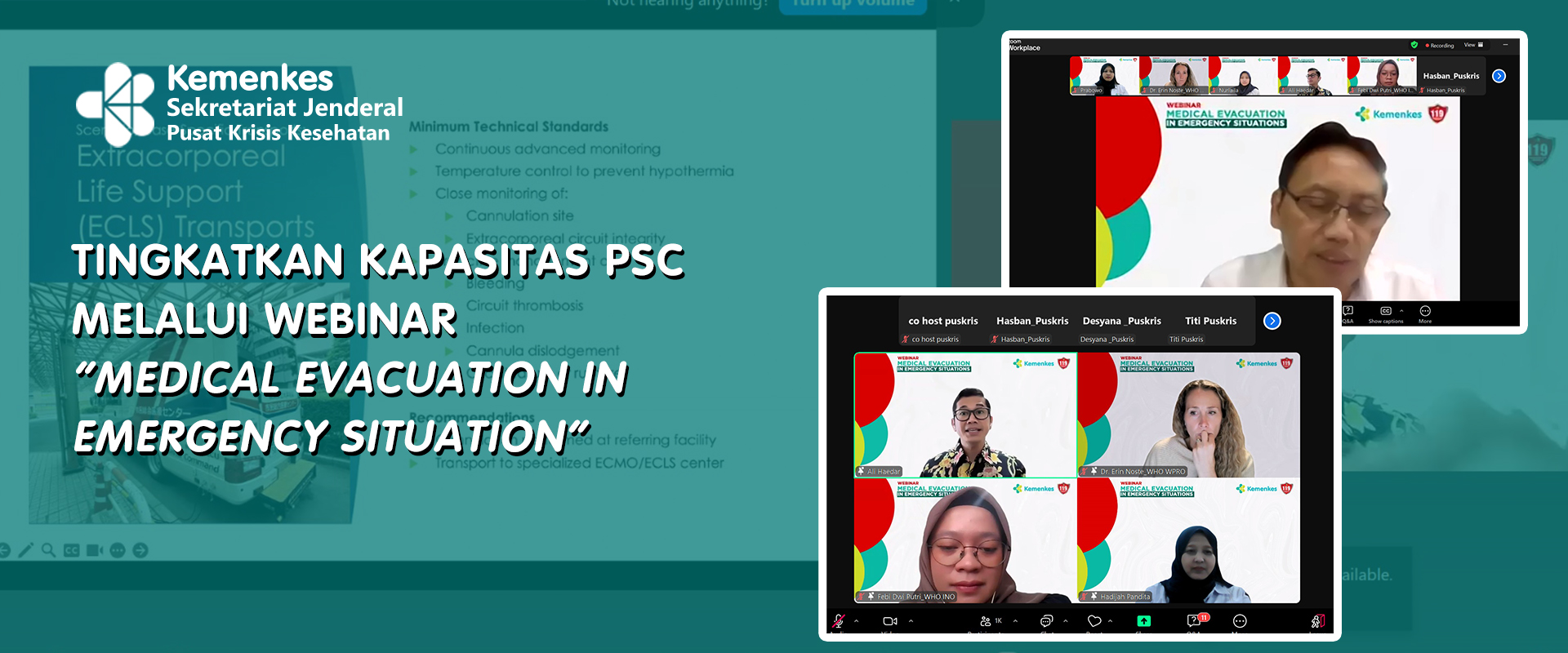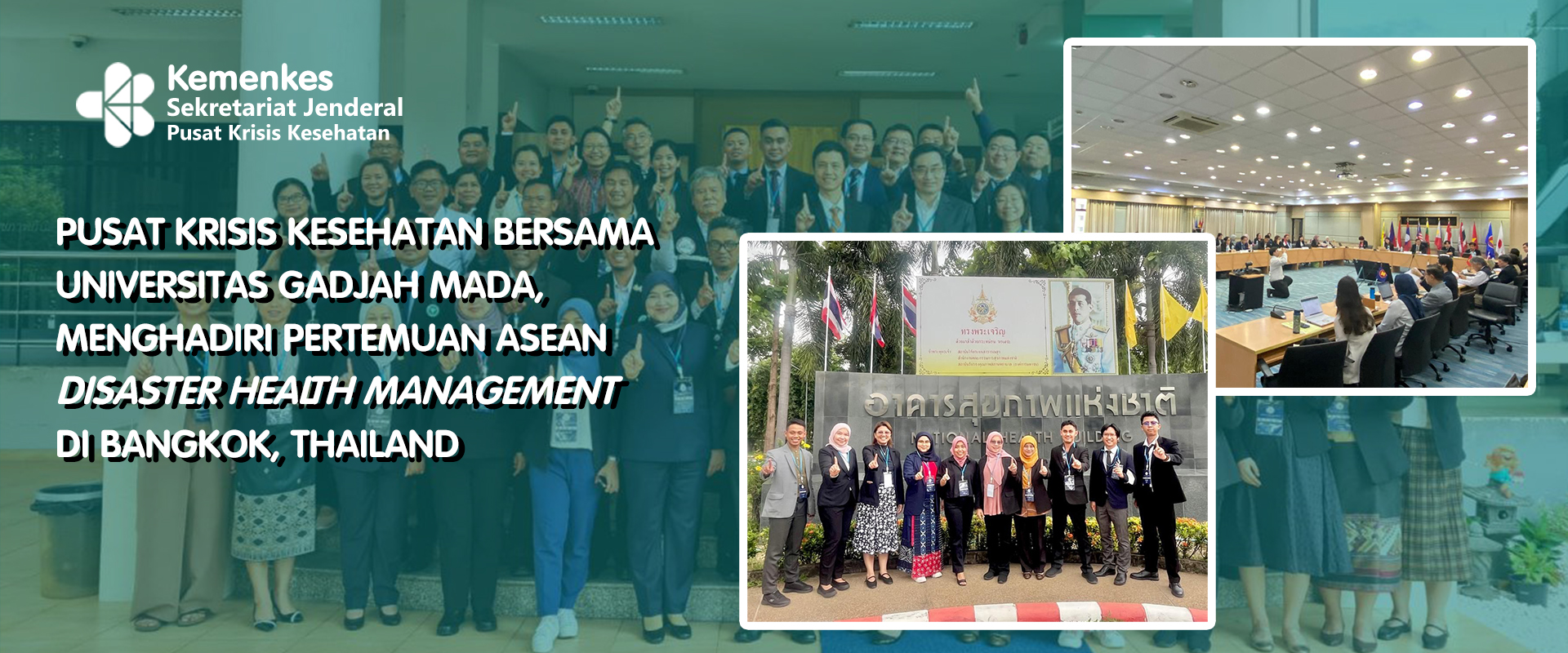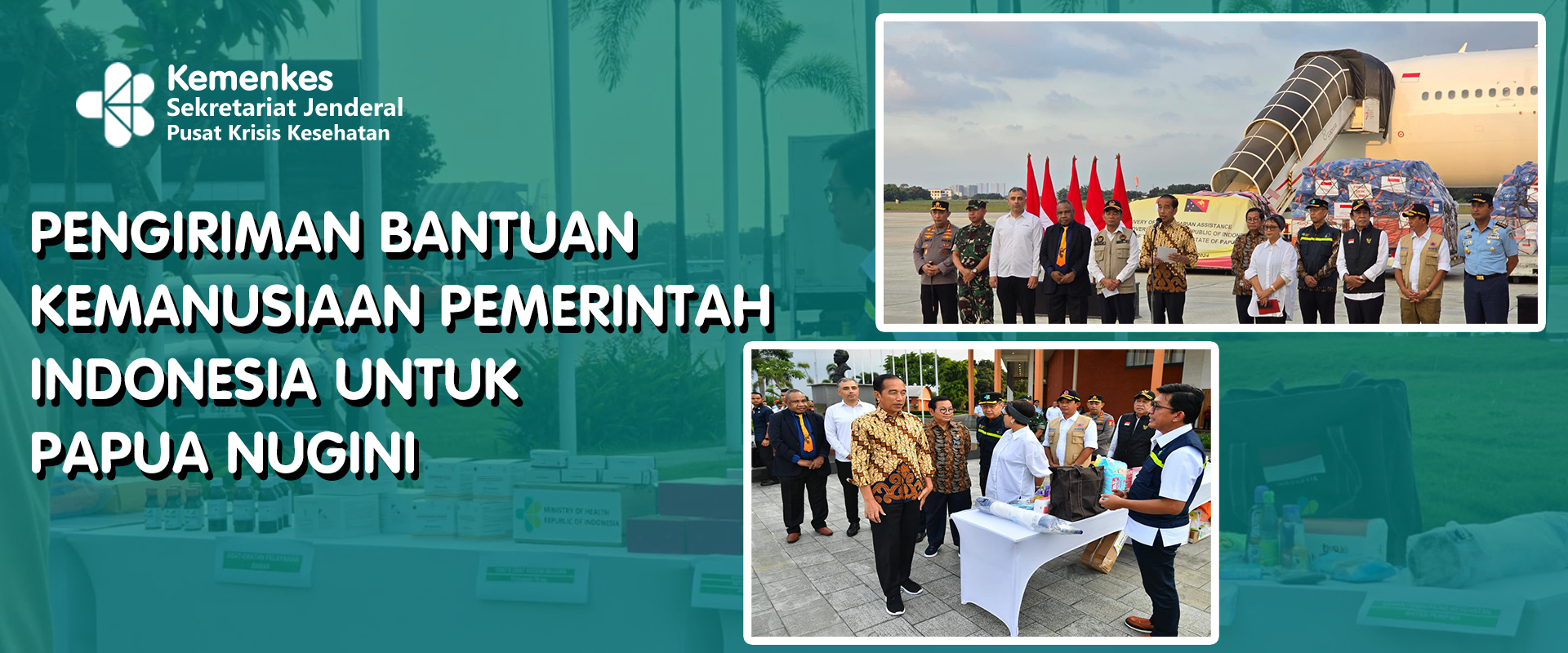Indonesia is a disaster-prone country, therefore disaster management efforts must be increased, especially in the pre-disaster phase. One of the efforts in the pre-disaster phase is the Disaster Risk Reduction which includes activities to increase human resource capacity, early warning, mitigation, and preparedness. One of the preparedness efforts is conducting The Table Top Exercise (TTX).
TTX is a simulation designed to test the theoretical ability of a group to respond to a situation. One of the great advantages of TTX is that it allows people to test a hypothetical situation without causing a disturbance in the community. In other words, TTX is a training activity to improve the ability of the parties concerned for disaster preparedness, in this case, the health cluster.
Based on this, the Health Crisis Center organized the "District/City Table Top Exercise in the Implementation of Health Crisis Management". On 23-26 July 2019, TTX was held at Hotel Prime, on Deli Serdang District. There were 20 participants from the District Health Office, District Disaster Management Agency (BPBD), District Hospital (RSUD), Military District Command (Kodim), Police, District Social Office, and Indonesian Red Cross (PMI). The purpose of this activity is to increase the capacity of the health cluster in managing health crisis management by applicable SOPs, based on contingency plans that have been prepared. Deli Serdang District did a TTX with a flood scenario.
Speakers and facilitators in this activity came from the Center for Health Crisis, North Sumatra Province Health Office, and Cipto Mangunkusumo National Hospital. Material is given to participants in Training Management, Disaster Management in Cluster Approaches, Reviewing Contingency Plan, and Dynamics of Group. The method of implementing this activity is exposure to the material, exercises, TTX implementation, group presentations, discussions, questions and answers, evaluations and follow-up plans.


(2).jpg)






